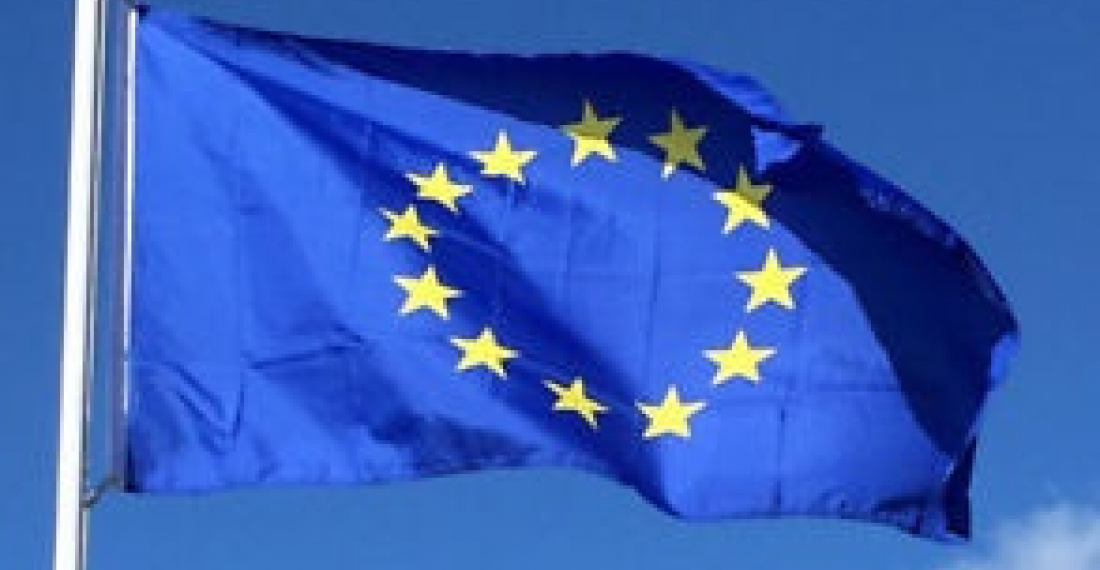European Commission President Jean Claude Junker reflects on 2018, and the challenges ahead in this op-ed, first published on Project Syndicate.
As we usher in a new year, the future direction of the EU has never been more important, both for Europe and for the rest of the world. In these increasingly tumultuous times, the EU can provide the stability and hope that the world so desperately needs.
For decades, Europe has been the poster child for integration and cooperation in a fractured world. Since the end of the Second World War, the continent has been living proof that multilateralism works. Europe's troubled past has given way to a peace spanning seven decades, and to a union of 500 million citizens living in freedom and prosperity. By any metric, Europe is now the most tolerant, free, and equal place to live anywhere in the world.
But the EU is not a given. Peace is not inevitable, and war is not implausible. The year 2018 marked the centenary of the end of the First World War, the lessons of which must still be heeded. The Europeans of 1913 thought that war was impossible, that they were too interlinked to turn on one another. We Europeans have a rich tradition of ignoring premonitions of ruin at our own peril.
Given this history, today's re-emergence of a dangerous brand of nationalism should be sounding alarm bells across our continent. I believe we owe it to generations past, present and future to fight unchecked nationalism with all our might.
That means getting our own house in order, particularly on the economic front, by boosting investment through new forms of public and private partnerships. Moreover, to reduce risk across the EU, we need to fix our banking sector. That means shoring up a strong and stable eurozone, and deepening the Economic and Monetary Union. It also means not waiting for the next crisis to hit, but rather working proactively to make the EU more united and democratic than ever before.
Moreover, fighting nationalism at home means taking our destiny into our own hands. And yet, in a globalized world, Europe cannot secure its interests and values by itself. From migration and security to new technologies and ecological pressures, the collective challenges we face are multiplying by the day. As the divisions within societies and between countries deepen, the imperative to work together grows stronger.
By cooperating with friends from around the world, Europe's member states can become more resilient, both individually and collectively. Now is the time to offer responsible global leadership. Now is the time to renew and redefine the ties that bind countries around the world, much as we are doing within our union. Our brand of leadership is not about putting "Europe first." Rather, it is about being the first to answer the call for leadership when it matters.
Europe continues to set a global example as a region upholding the value of global solidarity. In 2016, Europe offered asylum to three times as many refugees as the US, Canada and Australia combined. And, for years, Europe has provided more than half of the world's development and humanitarian aid.
For Europe, responsible global leadership also means setting fair standards. Only by putting people and their rights at the heart of the brave new digital world can we ensure that technological progress serves our people, as well as our planet. Whether it be brokering the Paris climate agreement, negotiating a deal with Iran to suspend its nuclear program, ridding our oceans of harmful plastic, or setting data protection standards, the EU is leading the charge on addressing the world's most pressing problems.
Cooperation, after all, is in our DNA. Individual European countries simply do not have the clout to shape global affairs on their own, and that is not going to change. By 2060, no single European country will have more than 1 percent of the world's population. Europeans must, therefore, continue to pool and share their national sovereignty, with the goal of establishing a stronger common sovereignty for all. As members of the world's largest single market - one that accounts for one-fifth of the global economy - each EU country is better placed to defend its national interests and to shape global events than it would be alone.
Looking ahead, our task is to strengthen this European sovereignty even further. That means speaking with one voice, sticking to our values, and delivering for our citizens ahead of the European Parliament election in May 2019.
History does not repeat itself, but it often rhymes. The world has been fractured before, and we have seen how this can lead to poverty, discord and war. Europeans know - or should know - this pattern all too well. So we must fight the populists of this world, those who peddle the false hope of new dawns, and those who replace fact with fiction and conjure "enemies" old and new.
Europe must provide the counterweight to these tendencies by demonstrating that we can still champion compromise and consensus over the politics of strongmen. What the world needs now is fairness and progress. The world needs Europe.
Jean-Claude Juncker is President of the European Commission. © Project Syndicate, 2018. www.project-syndicate.org
source: Commonspace.eu with Project Syndicate






